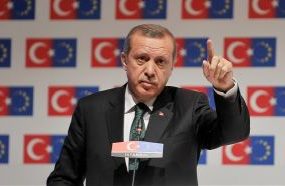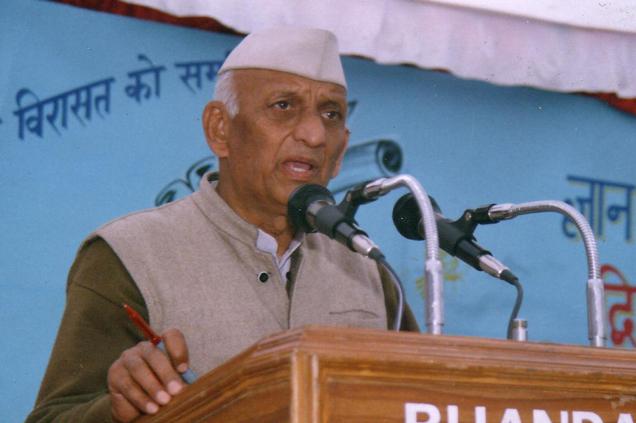It was October 2011. I knew this would be my last evening with the distinguished Turkish journalist, Mehmet Birand, as we looked over the Bosphorus from my hotel in Istanbul. He had been fighting cancer bravely for quite some time but the extent to which his large frame had shrunk was a clear sign that the disease was getting the better of him.
Birand had not allowed the disease to subdue his spirits. Quite to the contrary, he had seldom been as optimistic about Turkey’s place in world affairs. His country was not yet sowing the wind in Syria.
‘All these years we have been a docile ally of the West,’ he said. ‘But today we can hold our head high as an independent nation, a dissident country in the Western Alliance’.
He enjoyed using the term ‘dissident’, like he had been freed from the straitjacket imposed on his nation by the founder of modern Turkey, Mustafa Kemal Pasha.
This sense of being ‘freed’ was, in large measure, attributable to the manner in which Prime Minister Tayyip Erdogan, had expanded his electoral base from 36 percent in 2003, to 42 percent in 2007 and 50 percent in July 2011. Only with this kind of popular support could a government in Ankara tame the army. This Erdogan had effectively managed.
The trick to ride the crest of popularity exceeding even Ataturk’s was to fall back on the formula of ‘independent action in foreign affairs’. This, in most Muslim countries, easily translates itself into anti Americanism.
When Defence Secretary Donald Rumsfeld, sought passage for US troops into Iraq in 2003, Erdogan refused because 90 percent of the population were opposed to military action. His popularity grew in geometric progression.
With a considerable sense of theatre, he walked out on a bewildered Shimon Peres in Davos. He snapped ties with the Jewish state when a Turkish goodwill vessel carrying succor to Gaza was attacked by Israel. This was a total reversal of Turkey’s relations with Israel. Quite shrewdly, Erdogan had charted a path which went down well with the Arab street. He played this audacious hand because he knew that retribution would not be visited upon him for being a ‘rejectionist’. Turkey had its own protection: it was a member of NATO. Saddam Hussain and Qaddafi had been made examples of. Syria and Iran were in the line of fire. Their guilt? Having the temerity for being independent.
That is why Turkey was an awkward ‘dissident’ in the Western Alliance as Birand put it. Further, as part of its policy of peace with all its neighbours, Ankara had befriended Teheran to a point where the latter was willing to hand over its nuclear material to Ankara for safe keeping. All of this was deeply disturbing.
Could Erdogan be manipulated? Ofcourse he could, if only one knew his background. Erdogan and his colleague, President Abdullah Gul, had learnt their paces in politics in the company of Necmettin Erbakan whose Islamist Refah party came to power riding a wave of resentment in Turkey against the televised brutalization of Bosnian Muslims, once subjects of the Ottoman Empire. Guardians of the secular state from the Ataturk era, the Turkish army dethroned Erbakan. But a determined Refah party reinvented itself as a toned down Conservative party without abandoning its Islamist base. Under the leadership of Erdogan and Abdullah Gul, the new Justice and Development party (AK party) strode out.
For two and a half terms Erdogan and Abdullah Gul kept up a plausible manner: they were non-ideological, moderate Muslims. Yes, there was an occasional skirmish on trifles like headscarves for women but no serious threat of a Shariah flag being hoisted on a nation restored by Ataturk.
Why, then, did Erdogan manage to shuffle off the moderate image which had caused his reputation to rocket sky high?
First, the constitution does not allow a prime minister more than three terms. Thus, Erdogan saw the end of the road for himself in internal politics. He will probably try swapping jobs with Abdullah Gul in 2014-15. But will people let him? After all, 70 percent are opposed to conflict with Syria.
Second, the emergence of the Muslim Brotherhood across the Arab world, with a common strand, but different shades, tempted him to project himself as a true disciple of Erbakan to be able to beam his Islamic charisma regionally.
Also, he had won three successive elections improving his vote each time. This helped qualify Turkey as something of a model democracy in an Arab world where peoples’ power could well be the order in the foreseeable future. These were alluring propositions for the AKP leadership but an obvious fact was obscured from their vision: Arabs will accept ‘Ottomans’ only upto a point.
Saudi Arabia and Qatar had joined hands and were playing for very high stakes (a) to scuttle the peoples’ movement, an essential ingredient in the Arab Spring, which brought down regimes in Tunis and Cairo. They, and the rest of the GCC, were the most vulnerable should Kingdoms and Sheikhdoms ever be threatened. (b) They sought to divert popular discontent along sectarian, Shia-Sunni lines. (c) A major focus of exactly this strategy has been a foreign induced civil war in Syria, hopefully along Sunni-Alawi lines, targeting Bashar al Assad who is being cast in the Western media as some sort of an Alawi ogre. With Assad’s departure (went the facile theory) Syria would be removed from the Iran, Hezbollah, Hamas axis. How? What, pray, will come in Assad’s place? The 148 groups fighting the regime who can’t even form a delegation for Geneva-II? Listen to Tom Friedman screaming: send a UN force; send a UN force!
Look at the nature of the plot and the naïve simplicity of the expected outcome.
Endorsed by the US and Europe, financed by Saudis and Qataris, helped by Turkey, armed by everyone, groups not dissimilar from the ones the US has been fighting in the Af-Pak region, are expected to create conditions which will cause a regime change in Damascus.
Why will this heartless, remote controlled operation bring about regime change in Damascus? After all, it took a full-fledged US occupation of Iraq, destruction of the Baath structure, wiping out the secret service, killing of Saddam Hussain and all over 10 years, before the US could leave Iraq in the sort of mess that country is in today. Syrian power structure is, in some senses, a mirror image of the Iraqi regime.
According to Lakhdar Brahimi, the UN representative in Syria, there are 148 groups, big and small, fighting in the country. Yes, these Islamic brigands can destroy Syria, but not change the regime which is fighting with its back to the wall and has been quite as brutal as the imported Islamists creating mayhem in the countryside.
Now that the two sides have fought each other to a standstill, comes the moment of reckoning for the regional promoters of the mayhem. This is the moment that will change the region. Witness the escalating protests in Turkey.
– Saeed Naqvi (IANS)
The opinions, beliefs and viewpoints expressed by authors, news service providers on this page do not necessarily reflect the opinions, beliefs and viewpoints of Hill Post. Any views or opinions are not intended to malign any religion, ethnic group, club, organization, company, or individual.
Hill Post makes no representations as to the accuracy or completeness of any information on this site page.



